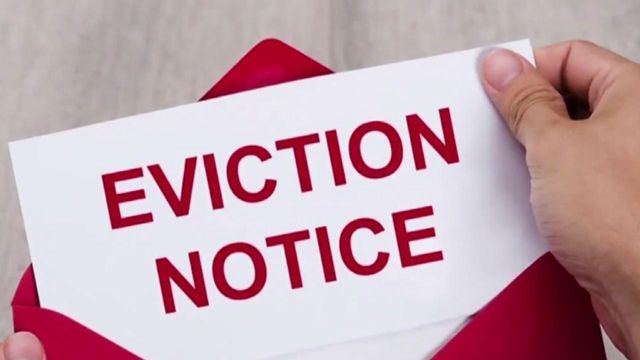NC considers new rental, mortgage assistance program
Legislature may set aside $200 million to help people cover mortgages, rent and utility payments due to pandemic.
Posted — UpdatedPeople could also get utility assistance through the program, which would be funded using federal coronavirus stimulus dollars. There are various income caps and a $1,000-a-month, nine-month maximum.
Participants would have to show that they can't make payments and that they've got a hardship because of the COVID-19 pandemic. Homeowners would have to pay the money back only if they sell or refinance their home for a profit.
"It's not a free giveaway," Rep. John Szoka, R-Cumberland, said. "This is a highly targeted program to help those people most in need of help."
Szoka is a primary sponsor on House Bill 1200, which would create the program. The bipartisan measure has nearly 60 co-sponsors in the 120-member House. It was up for discussion but not a vote Tuesday morning in the House Appropriations Committee.
The proposal got some pushback from Republicans who said they were concerned that people would take undue advantage of it. Rep. Michael Speciale, R-Craven, chafed at the idea of taxpayers paying for the economic fallout from government-ordered business shutdowns.
Those shutdowns, ordered across the world, were an effort to stem transmission of the highly contagious coronavirus.
"Now we're using taxpayer dollars to pay people's rent," said Speciale, one of the legislature's most conservative members. "I find that totally preposterous, and I just want to make that comment."
The program would have three prongs, and the mortgage assistance portion would get $60 million. It started at $100 million, but money was shifted to the rental and utility assistance programs.
The mortgage program would max out at $1,000 a month, with a total cap of $9,000, and require the following:
- A financial hardship or job loss due to the pandemic, verified through the state unemployment office.
- Household income at or below 350 percent of the federal poverty level, which is about $87,850 for a family of four.
- The mortgage lender has denied forbearance, loan modification or other relief.
- The home must be the grantees' sole and primary residence.
Following are rules for the rental assistance program:
- Applicants must experience financial hardship or job loss due to the pandemic, verified by the state unemployment office.
- They must be unable to make rent payments.
- Their household income can't be more than the median income in the area where they live. For example, Szoka said, the median income in Fayetteville is about $54,700.
- The maximum is $9,000 total, and rent payments can't exceed 70 percent of the household's adjusted monthly gross income, or $1,000 a month.
Following are rules for the utility program:
- Water, sewer, electricity and natural gas can be covered, but only to a residence.
- The grantee's household earned income can't be more than 80 percent of the area's median income.
- The cap is $1,800.
- There are tiered monthly caps. People who make less than 50 percent of the median area income could get up to $300 a month. People making 51 percent to 80 percent could get up to $150 a month.
The programs would be run by the state's Housing Finance Agency, and there's money set aside within the $200 million program to pay housing counselors and nonprofits that provide legal assistance to help.
Lawmakers haven't finalized how much would be set aside for each prong of the program, and Szoka said those conversations will continue.
• Credits
Copyright 2024 by Capitol Broadcasting Company. All rights reserved. This material may not be published, broadcast, rewritten or redistributed.






